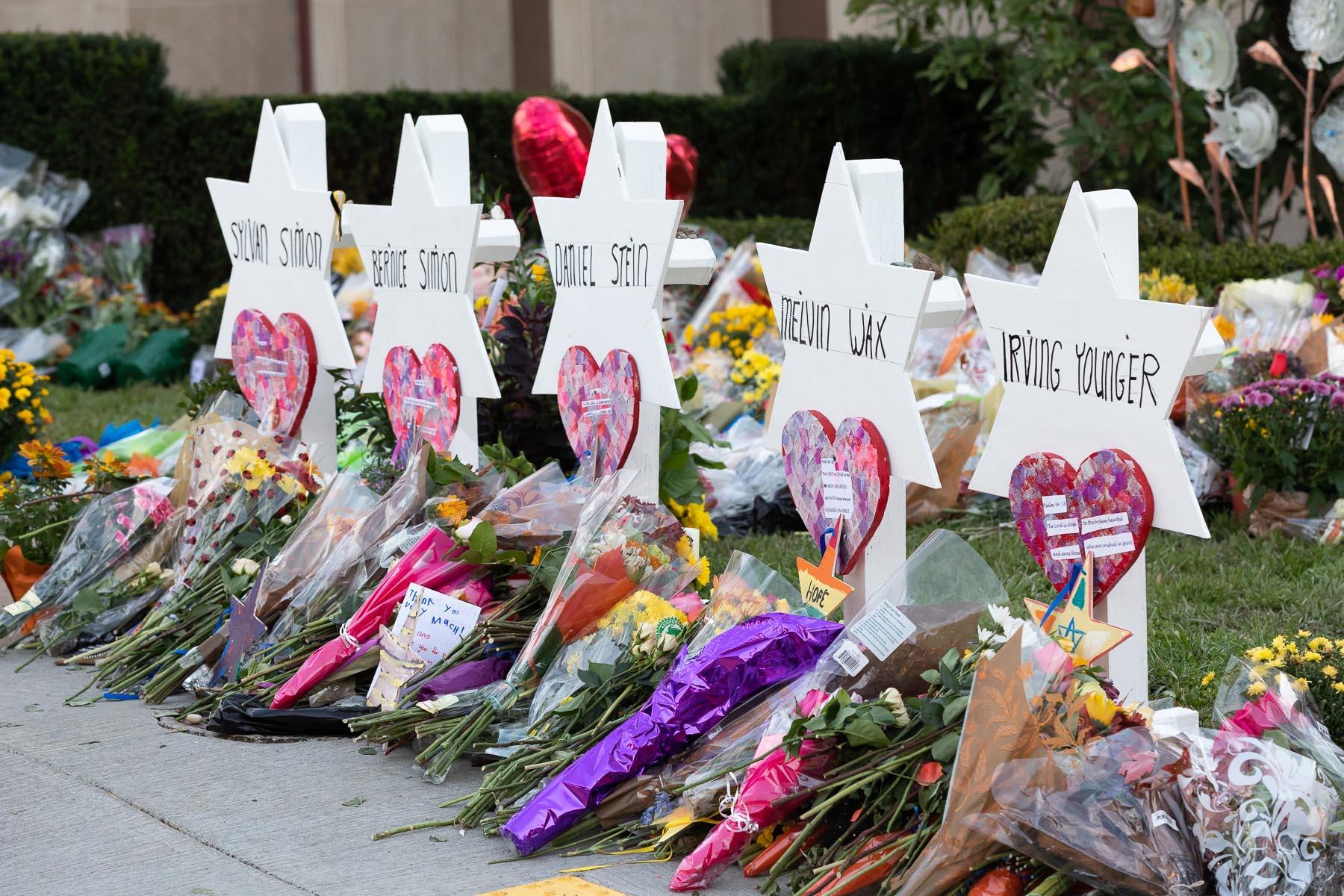A federal jury in Pennsylvania has decided in favor of the death penalty for Robert Gregory Bowers, the man convicted of murdering eleven people in Pittsburgh’s Tree of Life synagogue in 2018, the deadliest single attack on a Jewish community in the history of the United States.
Bowers wounded six others, including four police officers, in the attack he took as many as six months to plan. Police on the scene shot Bowers several times.
The case took more than four years to come to trial, owing to a complicated series of legal issues including applicable federal statutes, competence of the defendant to stand trial, admissibility of certain evidence – especially statements Bowers had made after he had been arrested, and a motion for change of venue that was denied in March of 2022.
Bowers went on trial at the end of May. The jury returned a guilty verdict in June of this year, after a trial that lasted just over two weeks. The defense called no witnesses. The jury took five hours to deliberate over two days before returning its verdict on sixty-three federal charges, twenty-two of which were capital offenses.
The penalty phase began on June 16th, and saw attorneys presenting claims, examining experts, and arguing over aggravating and mitigating factors in order to determine whether Bowers should receive the death penalty or life in prison without the possibility of parole.
In choosing the death penalty, the jury decided that the atrocity Bowers committed was egregiously horrific, that Bowers had planned and executed his attack motivated by religious and specifically anti-Semitic hatred, and that he showed no remorse for his crimes.
Witnesses for both the prosecution and the defense said Bowers had expressed pride in his crimes, for which they said Bowers believes himself deserving of civic accolades, and quoted Bowers as saying he regretted only that he had not killed more people.
Defense attorneys pressed a case for life imprisonment based on Bowers’ history of mental illness and traumatic upbringing. They said Bowers’ family still loves him. Jurors did not disagree, but neither were they persuaded.
On the street outside the courthouse, Tree of Life congregant Jean Clickner told the Pittsbugh Post- Gazette she is personally opposed to the death penalty and is unsure unsure how she feels about the decision.
“The way he acted,” she said, “the way he told his own doctors that he wished he had killed more and wanted to kill when he was in jail for 4½ years?”
“Did he have a delusion? Did he have any schizophrenia in jail?” she said. “No.”
Bishop David Zubik of the Diocese of Pittsburgh, who personally knew three of the victims, issued a statement on Wednesday saying he hopes Wednesday’s verdict “will bring closure to so much pain on the victim’s families, to all our Jewish sisters and brothers and on all in the southwestern Pennsylvania community and beyond.”
“My heart, and the prayers of all the people of the Diocese of Pittsburgh, are with those who lost loved ones and experienced trauma due to the massacre of Jewish people by Robert Bowers in the Tree of Life Synagogue on October 27, 2018,” Zubik said.












